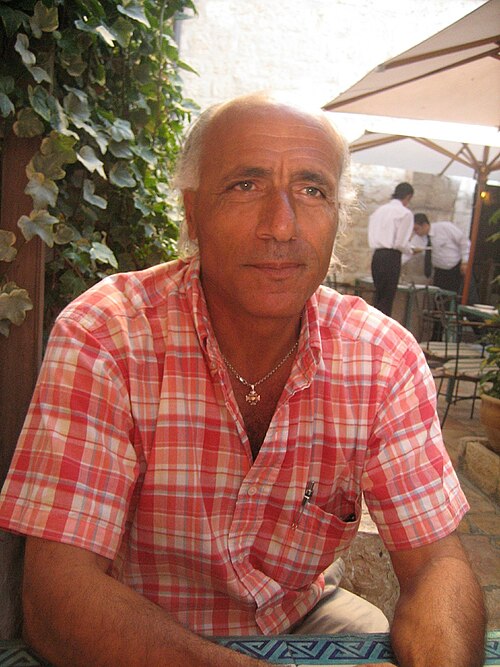By Roman Yanushevsly
Jerusalem (INPS Japan) – The Vanunu Affair remains one of the most controversial episodes in the history of nuclear non-proliferation and whistleblowing. In 1986, Mordechai Vanunu, a former technician at Israel’s top-secret nuclear facility in Dimona, revealed to the world that Israel possessed a significant and undeclared nuclear arsenal. |RUSSIAN|JAPANESE|INDONESIAN|
His disclosure not only shook Israeli politics but also sent shockwaves through the international community, raising difficult questions about transparency, national security, and the moral obligations of whistleblowers.

Who Is Mordechai Vanunu? Mordechai Vanunu was born in Marrakesh, Morocco in 1954 and immigrated to Israel with his Jewish family in 1963. After completing his military service, he began working as a technician at the Negev Nuclear Research Center near Dimona in southern Israel. For nearly a decade, Vanunu had access to sensitive areas of the facility, gradually piecing together the extent of Israel’s covert nuclear weapons program.
Disillusioned with Israeli policy and increasingly sympathetic to leftist and pro-Palestinian viewpoints, Vanunu secretly began photographing the interior of the Dimona facility. In 1985, when he learned that he was about to be laid off from his job, he brought a photo camera to secret parts of the nuclear center and took 57 photographs there.
Eventually he left Israel and traveled first to Nepal, where he converted to Buddhaism, and then to Australia, where he converted to Christianity. There he met Oscar Guerrero, a freelance journalist from Columbia who convinced him to sell this story for one million dollars. So he contacted British journalists and eventually shared his information with The Sunday Times in the UK.
Vanunu’s photos and detailed testimony provided compelling evidence that Israel had developed between 100 and 200 nuclear warheads, making it one of the world’s most powerful undeclared nuclear powers. The information contradicted Israel’s long-standing policy of “nuclear ambiguity,” under which it neither confirmed nor denied the possession of nuclear weapons.
On October 5, 1986, The Sunday Times published a front-page story featuring Vanunu’s claims. The article included photographs and technical analysis, concluding that Israel had built advanced nuclear weapons, including hydrogen bombs. The story was a bombshell, undermining Israel’s global image and complicating its diplomatic relationships—particularly with the United States.
Even before the article’s publication, Israeli intelligence was tracking Vanunu. In a clandestine operation known as “Operation Diamond,” Mossad agents lured him from London to Rome using a female agent named “Cindy,” who posed as an American tourist. In Rome, he was kidnapped, drugged, and secretly flown back to Israel.
Vanunu was charged with espionage and treason. His trial was held behind closed doors, and he was sentenced to 18 years in prison, 11 of which he spent in solitary confinement. Israel imposed a total media blackout on his case, though international human rights groups and journalists continued to campaign for his release.
The Vanunu affair triggered intense international debate. While some condemned him as a traitor who endangered national security, others hailed him as a courageous whistleblower exposing a dangerous secret. The revelations highlighted the double standards in global nuclear policy, particularly the tolerance of Israel’s arsenal by Western powers while pressuring other states, like Iran, to remain non-nuclear.
Israel’s policy of nuclear ambiguity had long been a cornerstone of its defense doctrine. By neither confirming nor denying its nuclear capabilities, Israel avoided international scrutiny and the political costs of open proliferation. Vanunu’s disclosures forced a de facto acknowledgment of these capabilities, though Israeli officials continued to avoid direct admission.
Vanunu was released from prison in 2004, but his freedom was limited. Israeli authorities placed severe restrictions on his movements, communications, and travel. He was forbidden from speaking to foreigners or discussing his knowledge of the Dimona facility. Despite numerous appeals and international support, his requests to leave the country were repeatedly denied.
The Vanunu case remains a flashpoint for debates about the ethics of whistleblowing, especially in matters of national security. Critics argue that Vanunu broke the law and jeopardized Israeli security. Supporters counter that he acted in the global public interest, exposing a major nuclear power operating outside of international regulation.
The impact of the Vanunu affair reverberates to this day. It exposed the hypocrisy in global non-proliferation policy and drew attention to the need for greater transparency and accountability. It also inspired numerous books, films, and academic studies on the limits of secrecy, the rights of whistleblowers, and the politics of nuclear deterrence.
Mordechai Vanunu paid a heavy personal price for his actions—nearly two decades of imprisonment and a lifetime of surveillance and restrictions. Whether viewed as a traitor or a hero, his revelations fundamentally altered global discourse around nuclear weapons. The Vanunu affair underscores the complex balance between national security and the public’s right to know, a balance that remains as relevant as ever in today’s volatile geopolitical climate.
This article is brought to you by INPS Japan in collaboration with Soka Gakkai International, in consultative status with UN ECOSOC.
INPS Japan




